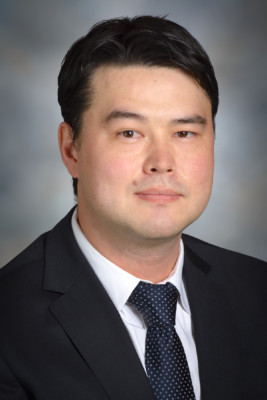
As COVID-19 restrictions are loosening up and summer is finally here, Canadians are eager to spend more time outdoors, get their barbeques out and make the most of the sunshine. A new study from McGill University’s Goodman Cancer Research Centre (GCRC) is a reminder why caution is required while doing so, especially for men. An estimated 8,000 Canadians will be diagnosed with melanoma skin cancer this year, 4,400 of whom will be men and 870 of whom will die from it. The figures for women are fewer with 3,600 women who will be diagnosed, 450 of whom will die from it.

One of the most important risk factors for melanoma skin cancer is ultraviolet (UV) radiation from the sun and indoor tanning. By shedding light on specific genetic changes caused by UV exposure, advances in gene sequencing techniques have given researchers the ability to dig deeper into the underlying causes for the sex differences in melanoma. After analyzing genetic mutations in more than a thousand melanoma cases, researchers have provided some insight behind this mysterious sex bias.
The research led by Professor Ian Watson and published in Nature Cancer, identified three genes on the X chromosome, with significant mutations. Females have two X-chromosomes whereas males have an X and a Y chromosome.
“Importantly, of the three significantly mutated genes we found on the X-chromosome, only one gene had a specific type of mutation found only in males,” noted Watson, the Canada Research Chair in Functional Genomics of Melanoma, and an assistant professor in the Dept. of Biochemistry.
Females can develop other types of mutations in the gene in question, but since they have two X chromosomes, they have two copies allowing the second to serve as a backup if the first gets mutated. Males of course only have one copy of the X chromosome.
“These mutations may help explain why male melanoma patients have higher incidence and worse survival rates,” says Rached Alkallas, a McGill University graduate student and co-first author of the published work.
“We’re continuing to do more research in this area, including determining how these mutations affect melanoma biology, and respond to immunotherapy,” explained Dr. Mathieu Lajoie, a research associate in the Watson lab and co-lead of the study.
More effective personalized treatment on the horizon
“Immunotherapy has been life-changing for many melanoma patients,” Watson says of the form of treatment that reactivates a cancer patient’s immune system to get rid of cancer cells. “Unfortunately, a large subset of patients still don’t respond to this treatment and we’re working in collaboration to understand where the problems lie in order to connect all the dots.”
In addition to men and women having different incidence and survival rates, data is beginning to emerge that suggest they may also have different response rates to the latest forms of therapy. Watson is investigating whether the sex difference in mutations he uncovered might help explain the reason. Deepening our knowledge of the genetics of various melanoma subtypes could also go a long way in providing personalized treatment whereby patients are matched with the therapies that are most likely to treat their specific cancer.
The importance of working together
Watson underlines the important role that the wider health community has played in his research, including oncologists, surgeons, dermatopathologists, immunologists and basic science researchers.
“Without the V Foundation and the Terry Fox Research Institute, my research would not have been possible,” Watson says, of the funding he received to complete this work. “In cancer research, you need experts from a variety of fields who can delve into our fundamental understanding of cancer, all this requires collaborations in both Canada and abroad.”
While there are still many unknowns, this study has significantly progressed our understanding of how UV exposure causes genetic changes that can lead to melanoma. The research also strengthens the rationale for following recommendations when it comes to safe sun exposure.
